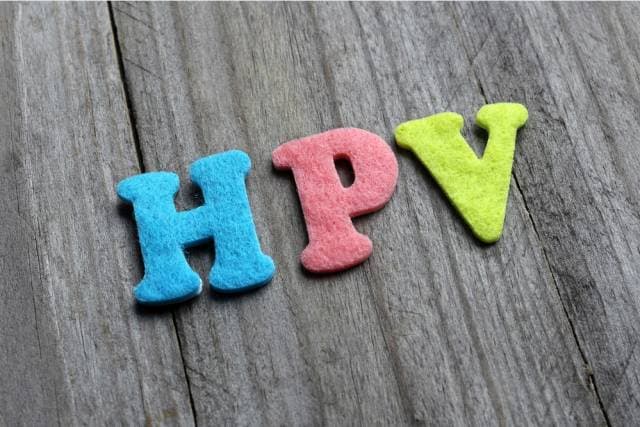Achieving a fulfilling and healthy sexual life is essential for overall well-being and relationship satisfaction. In this article, we will explore key tips and insights to enhance your sexual experiences. From effective communication to personal hygiene, contraception, and understanding the importance of timing and frequency, these guidelines will help you establish a strong and intimate connection with your partner.
1. It is common for first-time sexual intercourse to be unsuccessful, usually requiring 2-5 attempts to succeed.
Experiencing difficulties during the first sexual encounter is a common occurrence. Most failures are attributed to lack of experience with foreplay. However, after 2-5 attempts, most individuals are able to successfully engage in sexual intercourse. It is important not to become impatient or worried after a failure. Taking a break or waiting for 1-2 days until both partners are emotionally stable can help create a more successful experience.
2. Communication is key to a satisfying sexual relationship.
Research in the field of sexual science indicates that sexual intimacy between couples requires mutual understanding and cooperation. It is like two propellers working together to ensure a smooth flight. If one propeller starts spinning without the other, the plane won't take off. From a psychological perspective, if couples lack understanding of each other's sensitive areas, preferred positions, and desires, it can be challenging to achieve sexual harmony. Therefore, communication is essential for a fulfilling sexual relationship. Couples can discuss their sexual experiences after each encounter to better understand each other's preferences. With time, a simple glance, gesture, or moan can convey a deep connection and understanding.
3. Avoid consuming cold food immediately after sexual activity.
Engaging in sexual activity can create a feeling of warmth and thirst. Many people choose to consume cold foods to alleviate these sensations. However, it is important to note that the changes caused by sexual arousal are primarily limited to the sensory nervous system and endocrine system. As sexual arousal subsides, these changes gradually return to normal. Consuming cold foods only provides temporary stimulation to the digestive system. However, during sexual activity, the sympathetic nervous system is more active, leading to reduced blood flow to the gastrointestinal tract compared to normal circumstances. Consuming cold water or chilled beverages immediately after sexual activity can cause a sudden drop in temperature, potentially leading to gastrointestinal discomfort or even pain. Therefore, experts recommend drinking a small amount of warm or room temperature water if feeling thirsty after sexual activity, instead of opting for cold water or chilled beverages.
4. Stay hydrated before and after sexual activity.
Drinking 1-2 glasses of water before sexual activity can enhance blood flow to the male genital organs, resulting in stronger and longer-lasting erections. Hydration helps the body produce and transport sexual hormones efficiently, facilitating the production of lubrication. Additionally, it aids in timely urination after sexual activity, which can help prevent urinary tract infections. After sexual activity, drinking a glass of warm water can replenish the body's water levels, promote blood circulation, and assist in physical recovery, while reducing blood viscosity.

5. Prioritize personal hygiene and cleanliness before sexual activity.
Regardless of how aroused one may feel, it is essential to clean the body before engaging in sexual activity. Avoid waiting until after sexual activity to clean oneself. Neglecting personal hygiene can lead to the introduction of bacteria into the urinary and reproductive systems, potentially causing infections and inflammations. Therefore, it is crucial to thoroughly clean the body using soap or shower gel before engaging in sexual activity. Additionally, if using sex toys or accessories, it is important to disinfect them properly before use.
6. Pay attention to contraception methods during the early stages of marriage.
For couples who do not wish to conceive immediately after marriage, using condoms or external contraceptive methods (such as creams, films, or suppositories) is recommended. If planning to delay pregnancy for 23 years, women can consider using oral contraceptives. However, if pregnancy is desired, it is advisable to stop using oral contraceptives six months before attempting to conceive and switch to other contraceptive methods during this period. For those using intrauterine devices (IUDs) as a form of contraception, it is important to wait for at least 2-3 normal menstrual cycles before attempting pregnancy. The presence of an IUD, regardless of its duration, can have some impact on the uterine lining. Allowing time for the uterine lining to recover is important from a reproductive perspective before attempting pregnancy.
7. Etiquette plays a crucial role in maximizing sexual pleasure.
While it is widely known that good manners are important in all aspects of life, not everyone realizes that they also apply to sexual intimacy. During sexual activity, if one partner focuses solely on their own pleasure without considering their partner's experience, or if a man is satisfied but the woman is left unsatisfied, feelings of unhappiness or hurt can arise. Sexual experts emphasize the importance of sexual etiquette in a relationship: seeking consent before engaging in sexual activity, refraining from viewing intimacy as a mere obligation, respecting each other's sexual privacy, avoiding discussing unrelated matters in bed, refraining from comparing sexual performance, and not pressuring both partners to reach climax simultaneously.
8. Avoid sexual activity during a woman's menstrual period, early pregnancy, and late pregnancy stages.
During menstruation, vaginal secretions become alkaline due to the neutralization by menstrual blood, providing an ideal environment for bacterial growth. Additionally, the shedding of the uterine lining and the slight opening of the cervix during this time can increase the risk of introducing bacteria into the reproductive organs, leading to inflammation. Individuals with pre-existing chronic pelvic inflammatory disease may experience acute exacerbation if engaging in sexual activity during menstruation. Furthermore, sexual activity during menstruation can worsen uterine congestion, resulting in increased menstrual flow, prolonged periods, or worsened discomfort. Similarly, sexual activity during the early stages of pregnancy (first trimester) and late stages of pregnancy can stimulate the developing fetus in the uterus, potentially leading to miscarriage. Therefore, it is advisable to refrain from sexual activity during these periods.
9. Avoid immediately falling asleep after sexual activity.
Men often experience fatigue after sexual activity and may be inclined to fall asleep immediately, assuming it will alleviate the fatigue. However, this can actually prolong the feeling of fatigue until the following day. Typically, the duration of sexual activity, from both partners' sexual arousal to climax, can range from 5 to 20 minutes, although some individuals may take longer. The feeling of fatigue after sexual activity is primarily due to the relaxation of the reflex function responsible for controlling ejaculation. During ejaculation, the nervous system is highly stimulated, but after ejaculation, the reflex function of the nerves and spinal cord relaxes. Younger individuals tend to have more rapid recovery due to their active and sensitive nervous systems, while older individuals may require a longer recovery time. Falling asleep immediately after ejaculation prolongs the relaxation of the reflex function, thereby prolonging the feeling of fatigue.

10. Moderate and proper timing and frequency of sexual activity are crucial.
Sexual activity is not about quantity but quality. Young or newly married couples may experience stronger sexual desires and engage in sexual activity more frequently. However, as individuals age, the frequency of sexual activity tends to decrease to approximately 1-2 times per week, eventually transitioning to once a week. For healthy middle-aged couples, engaging in sexual activity 1-2 times per week is considered moderate, while individuals with health issues may need to space out sexual activity further apart. The adequacy of sexual activity can be determined by whether both partners feel energized, mentally and physically satisfied, and emotionally fulfilled after each encounter. If feelings of fatigue, weakness, shortness of breath, or overall discomfort persist after sexual activity, it may indicate excessive frequency or intensity, and moderation is advised.
In conclusion, maintaining a fulfilling and healthy sexual life requires effective communication, personal hygiene, proper contraception, and understanding the importance of timing and frequency. By following these guidelines, couples can enhance their sexual experiences and strengthen their intimate connection.




